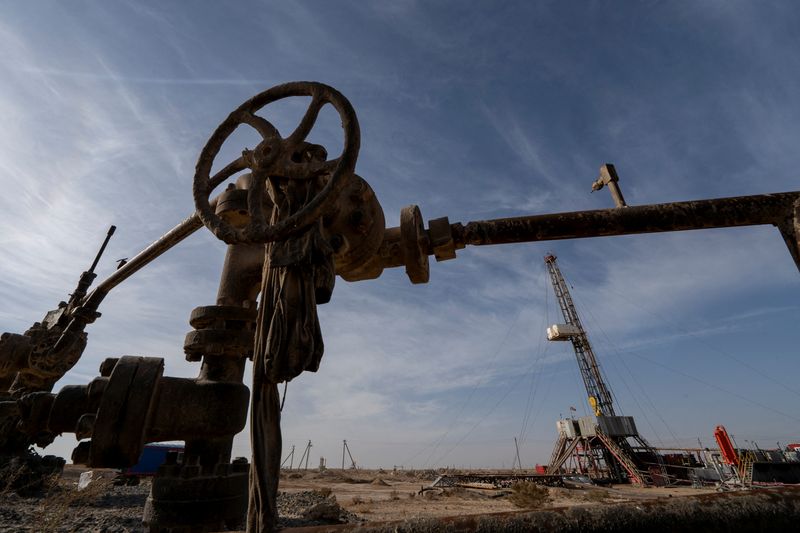
By Shariq Khan
(Reuters) – Oil prices rose on Friday but were set for a fourth weekly decline as signs of disappointing global fuel demand growth outweighed fears of supply disruptions in the key Middle East production region.
Brent crude futures gained 33 cents, or 0.4%, to $79.85 a barrel by 0020 GMT, after falling 1.5% in the previous session, while U.S. West Texas Intermediate crude futures rose 38 cents, or 0.5%, to $76.69, after a 2.1% drop on Thursday.
On a weekly basis, Brent futures are on track to fall 1.7%, while WTI futures are set to drop 1.1%. The four weeks of declines are set to be the longest losing streak for both benchmarks since a seven-week streak of weekly losses that ended in early December.
Surveys on Thursday showed weaker manufacturing activity last month across the United States, Europe and Asia, raising the risk of an underpowered global economic recovery that would weigh on oil consumption.
Disappointing economic data from top oil importer China this week, particularly falling manufacturing activity, weighed on prices, adding to concerns about demand growth there after import and refinery activity data for June was lower than last year.
“Markets continue to remain wary of Chinese oil demand after June data came in weaker-than-expected,” analysts at consultancy firm FGE said.
Asia’s crude oil imports dropped to the lowest in two years in July on weak demand in China and India, according to data compiled by LSEG Oil Research.
Still, the outlook for Chinese crude oil imports is brightening, FGE analysts noted, citing an increase in strategic purchases and a recovery in refining rates in the country.

Oil investors are also cautiously watching developments in the Middle East, where the killing of senior leaders of Iran-aligned militant groups Hamas and Hezbollah stoked fears that the region could be on the brink of an all-out war and potentially disrupt supplies.
“Events from the past week have effectively torpedoed the ongoing Israel-Hamas ceasefire talks and brought the prospect of region-wide conflict closer,” FGE said.
This post is originally published on INVESTING.


